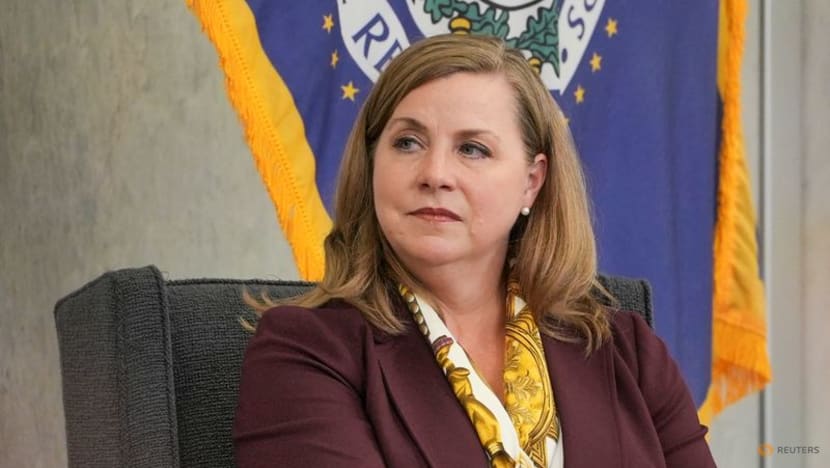Fed's Bowman suggests allowing central bank staff to own small amounts of crypto products

FILE PHOTO: Vice Chair for Supervision of the Federal Reserve Board of Governors Michelle W. Bowman moderates a discussion with OpenAI CEO Sam Altman (not pictured) during the Federal Reserve's Integrated Review of the Capital Framework for Large Banks Conference in Washington, D.C., U.S., July 22, 2025. REUTERS/Ken Cedeno/File Photo
WASHINGTON :The Federal Reserve's top regulatory official suggested on Tuesday that central bank staff should be permitted to own small amounts of crypto products, arguing experience would better inform their work policing activities in those financial markets.
Fed Vice Chair for Supervision Michelle Bowman said easing restrictions on staff investments may also help recruit and retain expert bank examiners, and "de minimus" holdings of crypto and other digital assets would help staff develop a working understanding of those products.
"There’s no replacement for experimenting and understanding how that ownership and transfer process flows," she said in prepared remarks delivered to a crypto conference in Wyoming. "I certainly wouldn’t trust someone to teach me to ski if they’d never put on skis, regardless of how many books and articles they have read, or even wrote, about it."
Bowman did not offer specifics in terms of amounts or types of holdings she was considering, but her remarks serve as the latest indication of the friendlier tone regulators in the Trump administration are taking towards the crypto sector. Under Trump, the Fed and other bank regulators have already taken several steps to be more open to crypto activities by banks, after years of requiring banks to clear additional hurdles before diving into the sector.
Throughout her remarks, Bowman emphasized that bank regulators need to be less skeptical of new technologies in the financial sector, including crypto products. She accused bank watchdogs of having an "overly cautious mindset," which she argued could actually hinder the banking sector by placing undue restrictions on activities.
"We must choose whether to embrace the change and help shape a framework that will be reliable and durable - ensuring safety and soundness and incorporating the benefits of both efficiency and speed - or to stand still and allow new technology to bypass the traditional banking system altogether. From a regulator’s perspective, the choice is clear," she said.
Bowman said there are risks that come from any rapid transformations, but she maintained regulators need to acknowledge the potential benefits of those changes as well as potential problems.
"Risks may be offset or at least determined to be manageable when we recognize and consider the potentially extensive benefits of new technology," she said.













